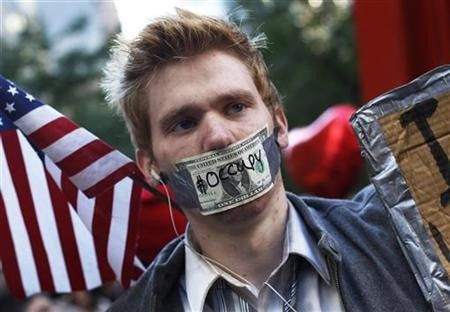Occupy Wall Street Protest Likely to Grow ‘More Vocal and Broad Based’

The Occupy Wall Street protest should not be dismissed as the “nebulous and unfocused utterances of a largely irrelevant political fringe” or the “emotional spasm of a bleeding heart liberal,” said Russell Jones, a strategist with Westpac Institutional Bank.
Instead, it is based on “deeper gathering malaise in the U.S. and much of the developed world” and will likely “grow more vocal and broad based.”
This economic malaise can manifest itself in the Right or the Left, said Jones. In the U.S., the Right-leaning manifestation is arguably the Tea Party movement and the Left-leaning manifestation is the Occupy Wall Street protest.
The roots of this economic malaise reach back to the boom times before the Great Recession.
During this period, the middle class in the developed world saw their wage shares fall and real income stagnate.
Many members of the middle class, however, still enjoyed prosperity by taking on excessive debt. Now that the debt bubble has burst, many are stuck with poverty and unemployment.
Jones is pessimistic on the future for developed world middle class. He said the trend of fiscal austerity will cut government spending, which in the U.S. has historically been crucial to the economic welfare of the middle and lower class.
He predicts that spending in public infrastructure, education, social services, social safety nets, and health care will be tight.
The middle class is usually politically moderate. However, the lack of support and benefits from the government, combined with its current financial struggles and the growing wealth gap, threatens to erode its base.
Many former members of the middle class will join “a growing underclass…lacking relevant skills, unable to relocate, unused to a culture of work, with little to occupy itself apart from crime and a growing sense of alienation and bitterness,” said Jones.
He thinks these tensions could lead to an “existential moment” in the U.S. due to the deeply ingrained national belief of self-determination, social mobility, and American exceptionalism.
He is not sure how politicians in the developed world will respond to these growing social pressures, whether it is with shortsighted palliatives or real reforms.
In the meantime, Jones, a financial analyst, would not be surprised to see continued volatility in the markets.
© Copyright IBTimes 2024. All rights reserved.





















